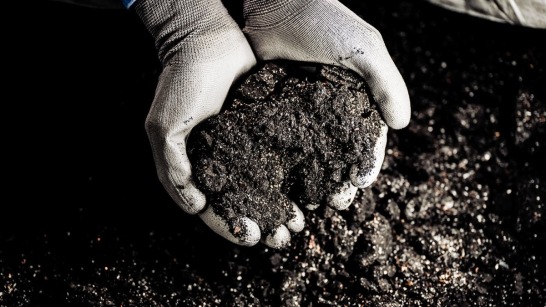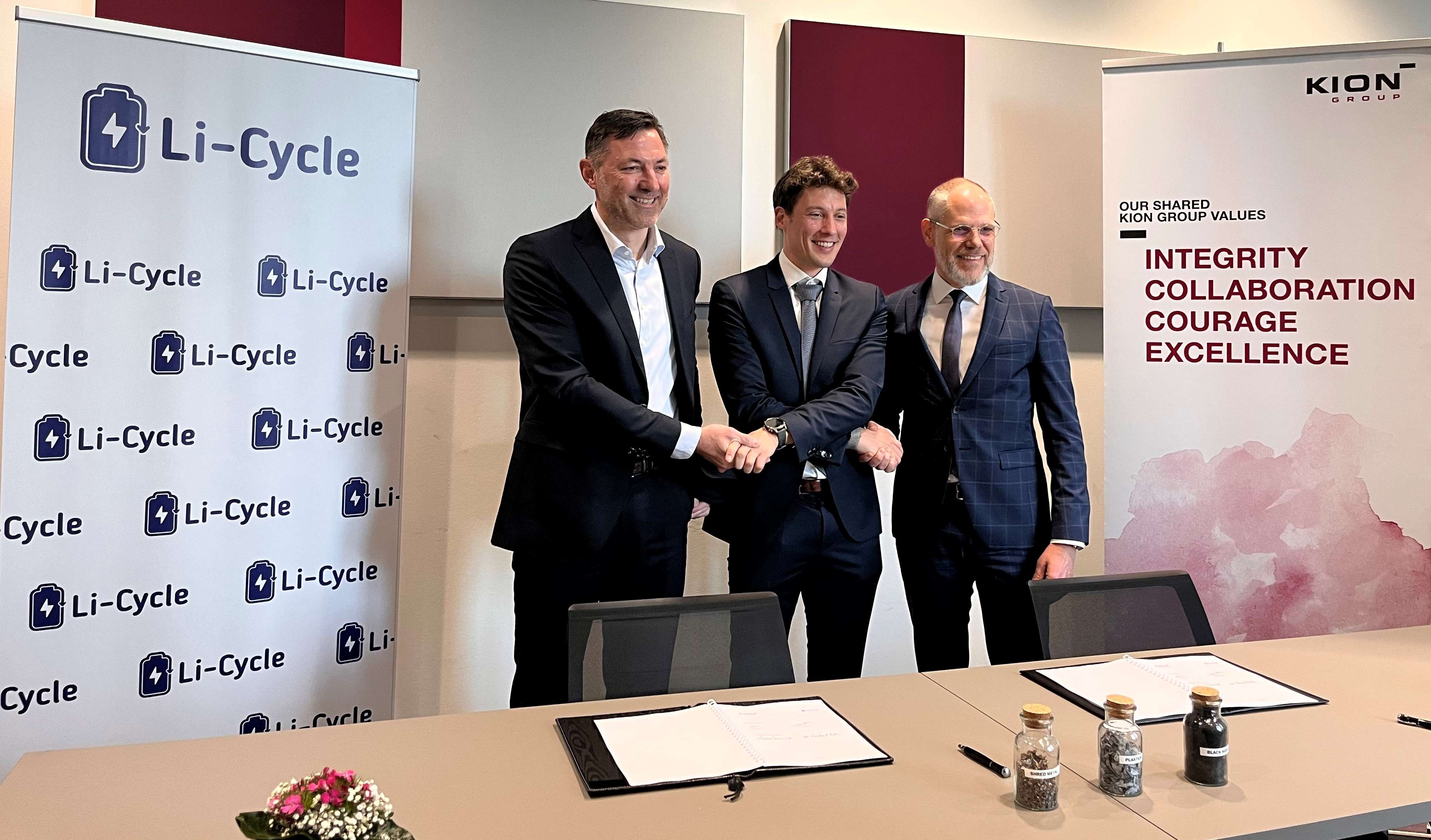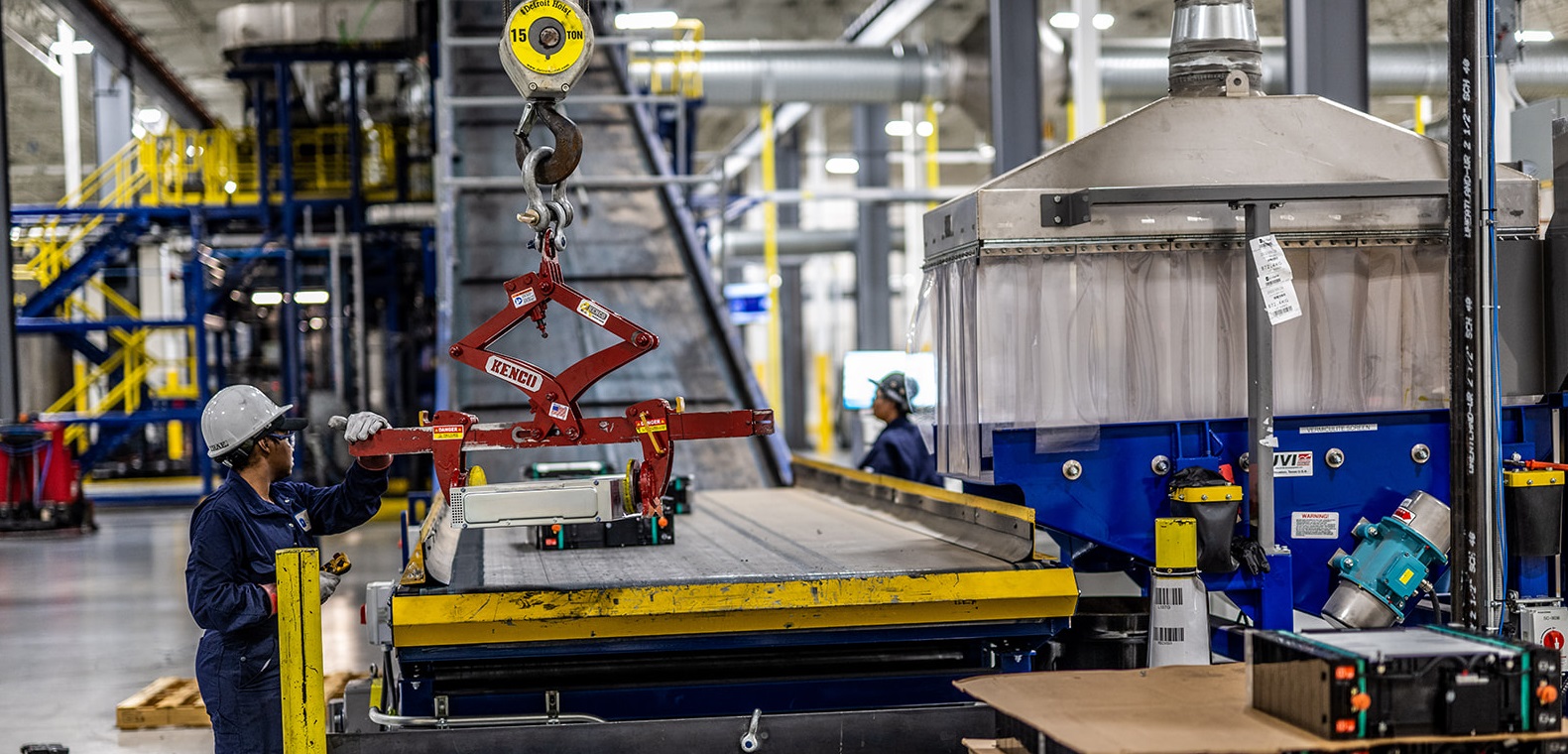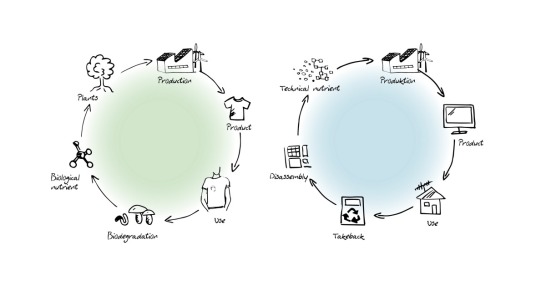
Recycling rate of up to 95 percent
The KION Group aims to continuously improve the sustainability of its products and solutions. Through a strategic partnership, lithium-ion batteries will be recycled via a complex process to recover the most essential materials. To implement this, KION is cooperating with Li-Cycle Holdings Corp., which is building a new plant in the Magdeburg area.
2023-03-29




